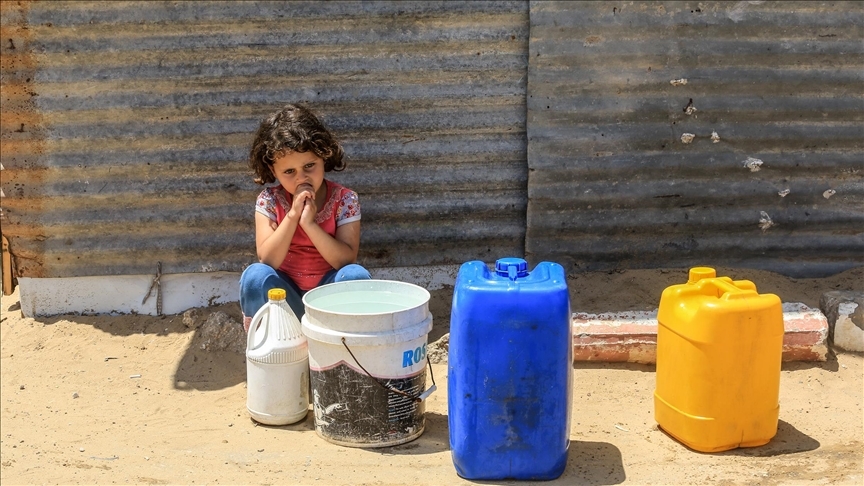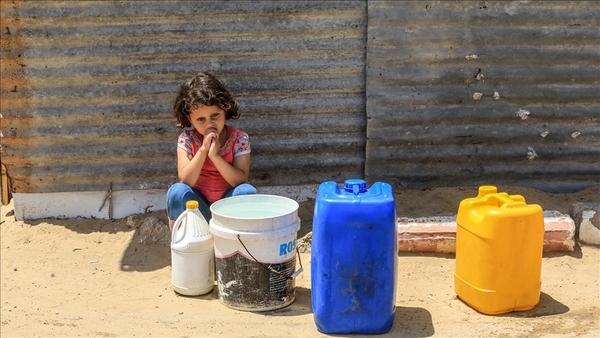The Palestinian Water Authority warned on Saturday of an imminent humanitarian disaster in Gaza due to the collapse of water and sanitation services as a result of the ongoing Israeli genocide, noting that the Strip has become a "dying of thirst" area.
The Water Authority said in a statement that "85 percent of water and sewage facilities in the Gaza Strip have suffered severe damage, and water extraction volumes have decreased by 70-80 percent."
She pointed out that "the occupation's destruction of infrastructure, power outages, and prevention of the entry of fuel and basic supplies (into the Gaza Strip) has led to a near-total halt in the provision of water services."
The Water Authority added, "Gaza has become a region dying of thirst."
She explained that "the average per capita water consumption in Gaza has dropped to between 3 and 5 liters per day, which is far less than the minimum recommended by the World Health Organization in emergency situations."
The minimum amount recommended by the World Health Organization for emergency response is 20 liters per person per day.
The Water Authority warned of "the spread of diseases resulting from the discharge of wastewater into residential areas and the filling of rainwater basins."
She stressed that "these Israeli policies constitute a flagrant violation of international humanitarian law, including the Fourth Geneva Convention, the Convention on the Prevention and Punishment of the Crime of Genocide, and the Rome Statute."
The Water Authority called on the international community to "take immediate action to halt the aggression, lift the blockade, provide protection for technical personnel, and support the Palestinian government's efforts in emergency interventions and recovery plans in the Gaza Strip."
On Tuesday, Pedro Araujo-Agudo, the UN Special Rapporteur on the human rights to adequate drinking water and sanitation, told Anadolu Agency that the Israeli occupation's destruction of the water infrastructure in the Gaza Strip and its denial of access to clean water are a "silent but deadly bomb."
"The vast majority of Gaza's population either only has very limited access to water, or the water they do have is dangerously polluted," Agudo explained.
He added that the Israeli blockade imposed since October 2023 has included food, water, electricity, and other basic commodities.
The UN rapporteur noted that the crisis spiraled out of control after the Israeli occupation cut off access to fuel needed to operate water purification plants and wells.
He stressed that the deliberate destruction of water systems means using water as a weapon in the war on Gaza.
Based on UNICEF data, Agudo said that diarrhea cases among children under five increased from 40,000 to more than 70,000 during the first week of December 2024.
With full American support, Israel has been committing genocidal crimes in Gaza since October 7, 2023, leaving more than 172,000 Palestinians dead or wounded, most of them children and women, and more than 11,000 missing.



Share your opinion
Palestinian Water Authority: Gaza is dying of thirst